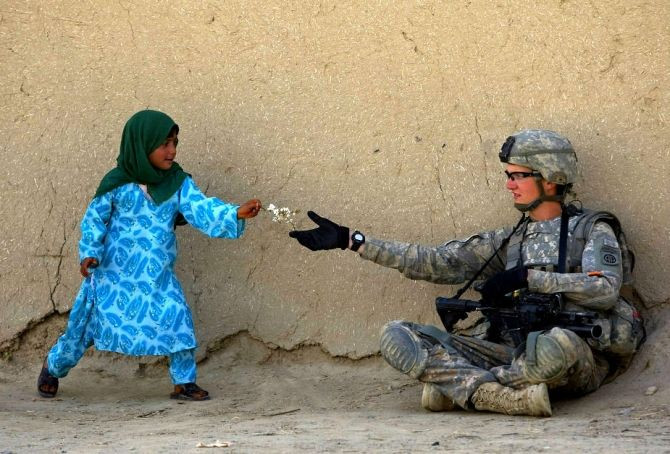Giving Makes Toddlers Happier than Getting, May Explain Why Humans Evolved Self-Sacrifice

Giving makes toddlers happier than receiving, according to new findings that may help explain why people act pro-socially, even when doing so often involves sacrifice.
Researchers found that not only were toddlers happier when giving treats to others than receiving treats themselves, children showed more happiness when they gave their own treats away than when they gave an identical treat that doesn't belong to them.
"People tend to assume that toddlers are naturally selfish," co-author Dr. Lara Aknin said in a university news release. "These findings show that children are actually happier giving than receiving."
Researchers had given toddlers participating in the experiment some Goldfish crackers. A few minutes afterwards, toddlers were asked to give one of their treats away and to give an extra treat provided by the experimenter to a puppet.
Researchers had videotaped the children's reactions to be rated on a seven-point scale.
The results show that toddlers displayed greater happiness when they shared their own treat with a puppet than when they gave the puppet a treat provided by the researcher.
Researchers said that the latest findings highlight the role of personal sacrifice. Instead of finding personal sacrifice aversive, the findings suggest that children find this behavior to be emotionally rewarding.
"What's most exciting about these findings is that children are happiest when giving their own treats away," Aknin said. "Forfeiting their own valuable resources for the benefit of others makes them happier than giving away just any treat."
While past studies have demonstrated spontaneous helping among toddlers in the absence of explicit or implicit social demand, the latest study, published in PLoS One, an on-line journal from the Public Library of Science, is the first to show that giving to others makes young children even happier than when they are receiving treats themselves.
"In addition, children’s differential happiness during costly and non-costly giving suggests that they distinguished between the two, and derived more happiness when giving involved sacrificing their own resources," the authors wrote.
Researchers said that their findings shed light on what scientists have long found puzzling: Why do humans help others, including people they've just met?
The fact that toddlers exhibit the "warm glow" often after performing pro-social behavior suggest that humans may have evolved to find pro-social behavior rewarding.
Researchers noted that while the children may be taught to engage in helping and sharing behavior before the age of two through praise and other forms of reinforcement, they believe that it is unlikely that children's nonverbal responses in this experiment solely reflected their anticipation for external rewards, like enthusiasm from the puppet.
In fact previous research has shown that external reinforcement of pro-social behavior actually undermines toddlers’ subsequent pro-social acts, both immediately and two years later.



























